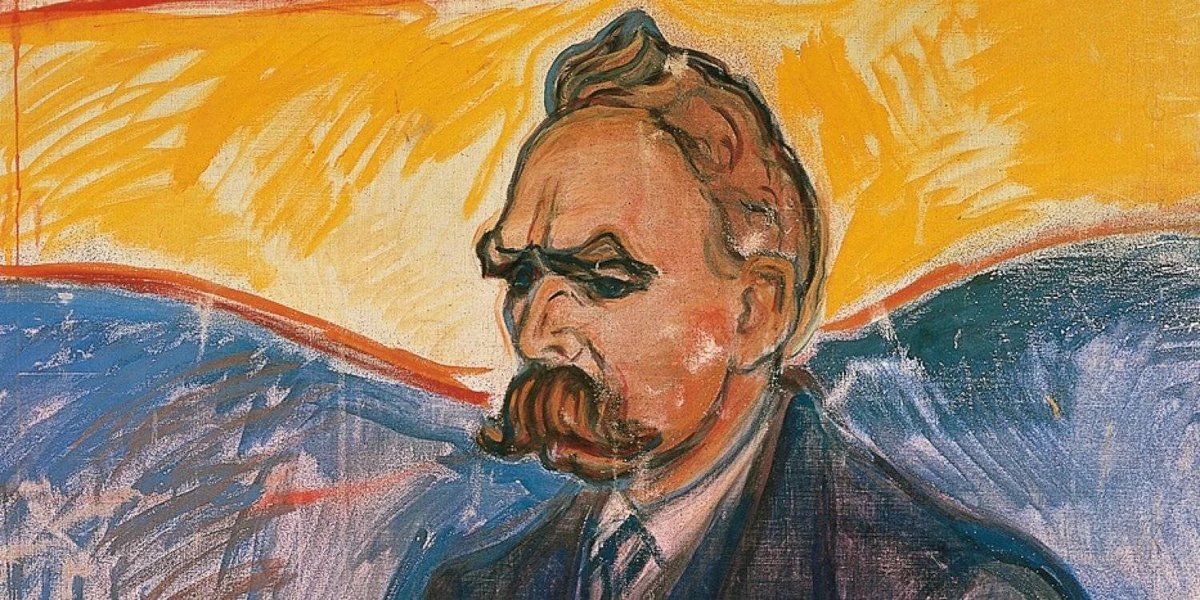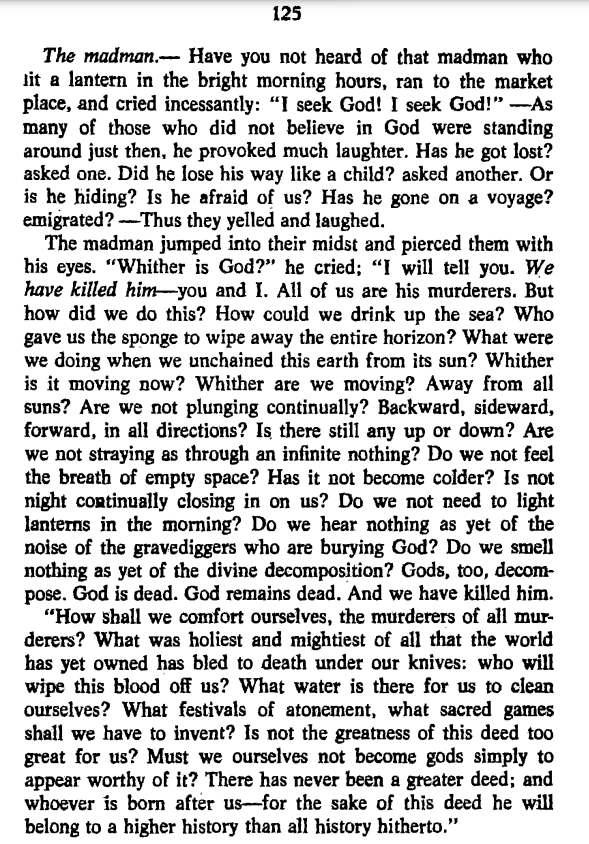God is Dead: Modern philosophy's boldest (and the most misunderstood) statement
Atheists think it's a triumphant announcement, but for Nietzsche it was a great TRAGEDY...
A breakdown of what Nietzsche actually meant:
Atheists think it's a triumphant announcement, but for Nietzsche it was a great TRAGEDY...
A breakdown of what Nietzsche actually meant:

1/ In The Gay Science (1882), Nietzsche announced God's death for the first time. For Nietzsche, God was not a useless burden, a liability, or an irrational filter that distorted our view of reality. The metaphors Nietzsche uses for God proves this. Let's see:

2/ God as Sun. The sun holds the planets in their orbit; similarly God oriented us. Unchained from our sun, "are we not plunging continually? Backward, sideward, forward, in all directions?" Our center of gravity is gone - we're hurtling through "an infinite nothing"



3/ God as horizon. Nietzsche asks: "Who gave us the sponge to wipe away the entire horizon?" The horizon keeps sailors on track when at sea. The horizon provides direction and holds the promise of ports to dock at. With the horizon wiped off, where do we look to in stormy seas?

4/ God as light. The madman who announces God's death in The Gay Science is carrying a lit lantern in broad daylight. He's mocked by the normies around him but they miss the point: Without God, we must now carry our own fragile flames. Illumination is no longer a given.
5/ Who killed God? We did. This task was " too great for us." Nietzsche asks: "What water is there for us to clean ourselves? What festivals of atonement, what sacred games shall we have to invent?" 

6/ Our cosmic father is dead, and we are now orphans in a hostile universe. Nietzsche wonders if we must now "become gods" simply to justify what we did...
7/ There are profound implications to God's death; these will unfold over centuries. Faith in God's existence underpinned a lot of what we take for granted - doesn't the idea of human rights and universal equality come from the notion of each created in God's image?
8/ Faith in God was the invisible foundation for much of civilization; it's all now on shaky ground. We will need new justifications, new fixed horizons, new sources of illumination, and new reliable centers of gravity. WHO is creative enough to build all of this from scratch?
9/ Bottomline. Nietzsche: "God is dead. God remains dead." Now who/what will do God's job? The tasks done by even the concept of God are too numerous for a simple conceptual replacement. God's death has left a void; to even begin to fill it requires great daring and creativity...

10/ Everyone should read the full passage where Nietzsche first announced the death of God, for it reveals the central spiritual crisis of modern man.
Here it is:
Here it is:

Thank you for reading fren. I appreciate your time
If you found the thred valuable, do RT
Nietzsche-Pill your timeline👇🏻

If you found the thred valuable, do RT
Nietzsche-Pill your timeline👇🏻
https://x.com/oldbooksguy/status/1759587464463757459?s=20

• • •
Missing some Tweet in this thread? You can try to
force a refresh










